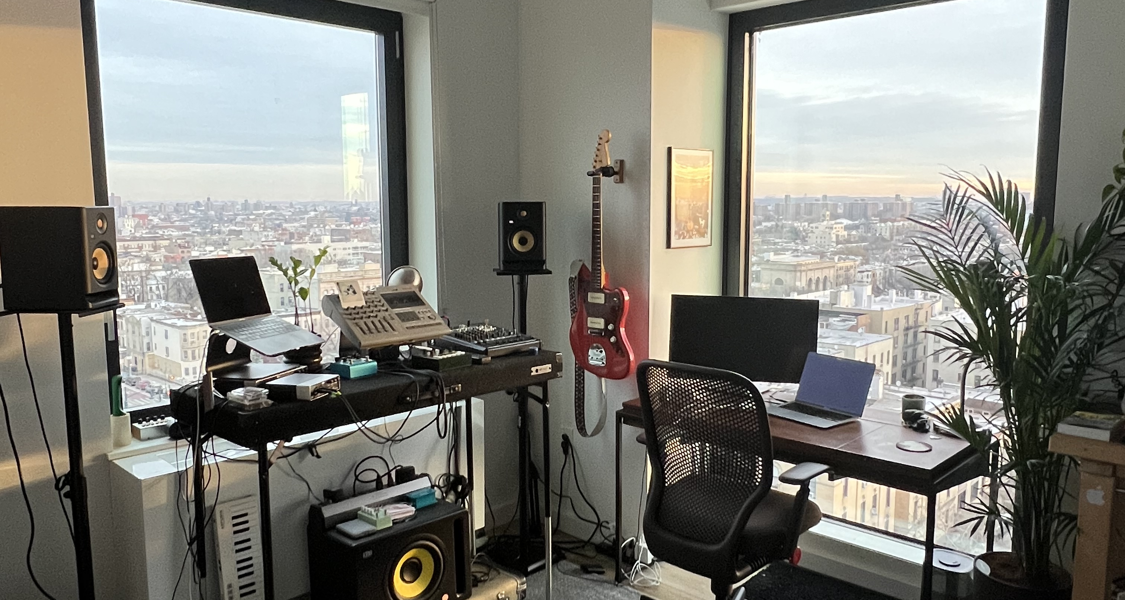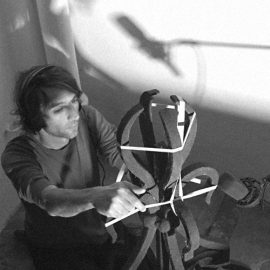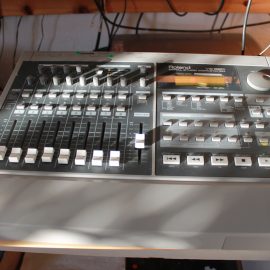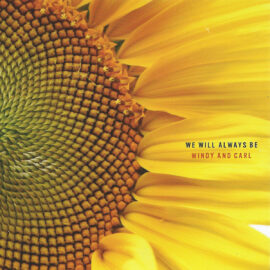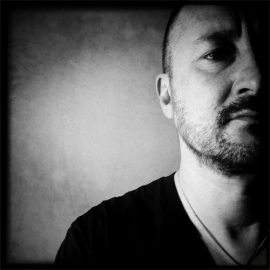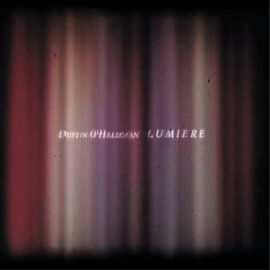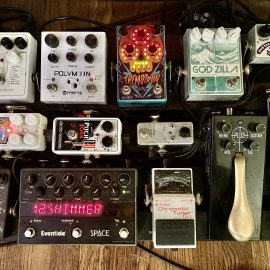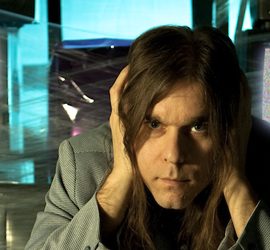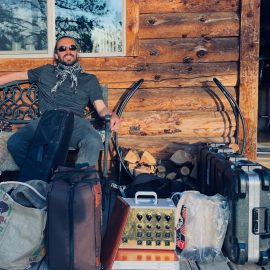Let’s start at the very beginning. Can you tell us how you got involved in composing, and what was your very first piece of gear?
Growing up, my parents kept a dingy toy acoustic guitar around the house; it wasn’t a real instrument in any sense, but at around ten years old, I taught myself the main riff from ‘Come As You Are’ and then played it endlessly. I think that was a signal that I should have a proper guitar, so for my next birthday, I got a black Fender Squier Strat, and it was off to the races. I still have that guitar… in terms of composing, it was probably another few years, but I wrote consistently for the bands I was in through high school and college, particularly my beloved college indie/noise band, Esmae. After that, the next big turn composition-wise would have been moving towards ambient/electronic towards the end of college.
How many different studio iterations have you gone through, and what does your final setup look like right now?
I live in Brooklyn; space is hard to come by, so my set-up is largely dependent on my living situation. In my current apartment, I’m lucky to have a second (small) bedroom, which I use as a studio and an office. My laptop is kind of mission control, and it sits on a tall DJ table facing out a window along with a few interfaces, a mixer, a reverb pedal, and whichever tape machine I’ve been using most recently. In the corner of the room to the left is my pedal chain and two Fender guitar amps, a Deluxe Reverb and a Princeton Reverb (both 70s-ish). Across the room, I have a synth station sitting on a butcher block table that usually has the Moog Matriarch at the base and the UDO Super 6 on top, which is a relatively new addition that I’ve been using to write quite a bit. I’ll also sub in a Korg Minilogue XD from time to time. Stuffed into corners and closets are all the other pedals, tape machines, cables, adapters, mics and mic stands, and other gadgets, etc.
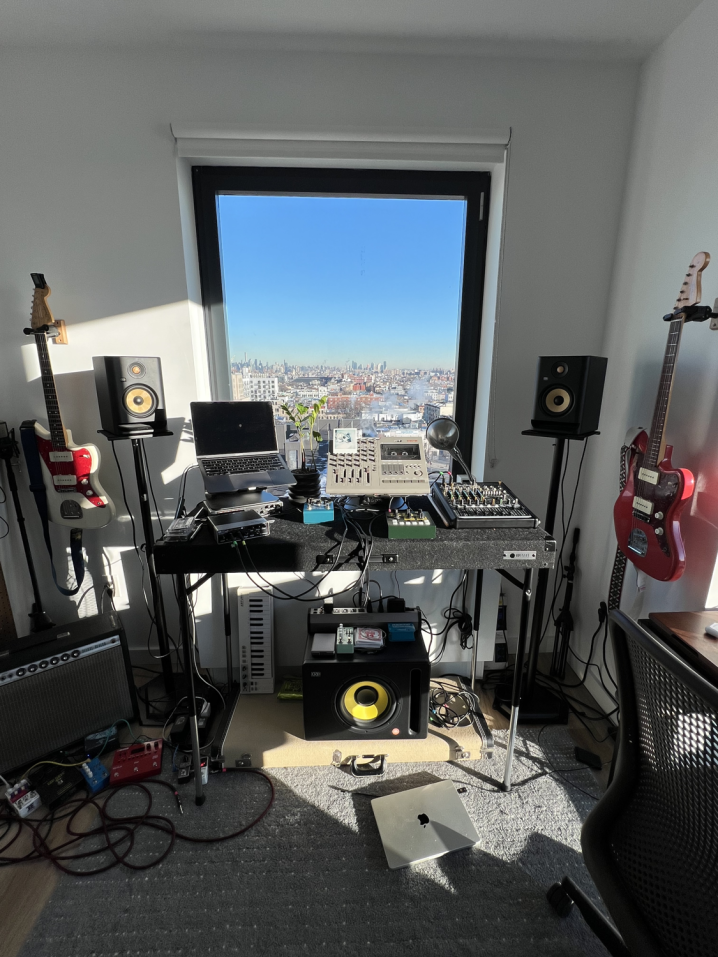
Tell us about your favourite piece of hardware.
It’s not the sexiest answer, but lately, it’s been the Boss RC-500 Loop Station. I use it for everything, especially at that stage of a new piece where a foundational idea is clear, but the challenge is how/whether to develop it. Just a really useful piece of gear for the composition process. Maybe I’ll also include a shout-out for the Demedash T-120 Videotape Echo, a really fun little delay pedal that is all over Secret Recess, the Green Corridor EP, and basically everything I’ve done in the last few years.
And what about the software that you use for production?
Ableton Live.
Is there a particular piece of gear that you’re just dying to get your hands on, and do you think one day you’ll have it?
I would really, really love to have regular access to a decent, properly-tuned piano. Some day, maybe, but unlikely as long as I’m a renter in NYC.
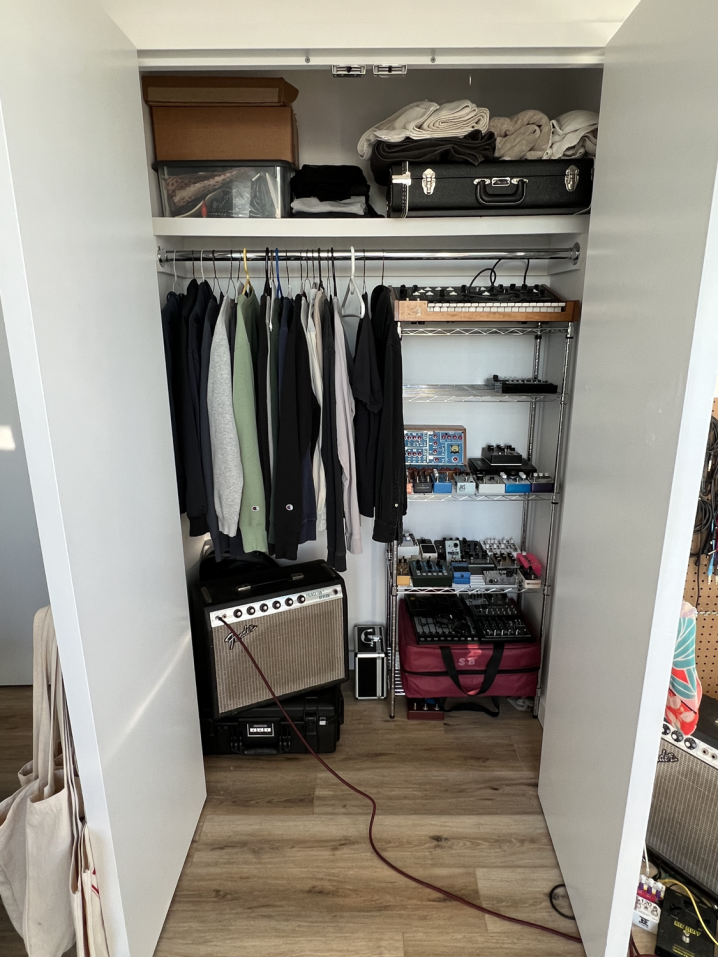
Can you please share some aspects of sound design in your work?
I think growing up, the music around me was incredibly melody-forward, and so I usually feel quite at home and confident with that aspect of composition; my ears always want melody whether I’m aware of it or not. What doesn’t come quite as intuitively to me is texture, so with Secret Recess, I really tried to be more intentional and proactive with respect to that element of the sound, and I’m really happy with the additional depth and breadth that I think it created. A track like ‘Hothouse’ – that’s just about an even split in the mix between mostly clean MIDI instruments and relatively lo-fi processed tape and hiss, and I think that combination brings something out of the track that it wouldn’t otherwise have had. I know thinking purposefully about texture isn’t groundbreaking stuff, but for my personal process, it’s been an important step.
Any particular new techniques that you tried out for your new album?
I definitely mic’d my guitar amps more on this record than I ever had in the past, which was an outgrowth of thinking more about texture, as I mentioned above, and just wanting that extra grit; in the past, a lot more was coming into the DAW direct from a pedal chain or a synth. Still somewhat a newb in terms of my engineering chops, and it’s tough to do in a small room, but I think it worked out well on this record.
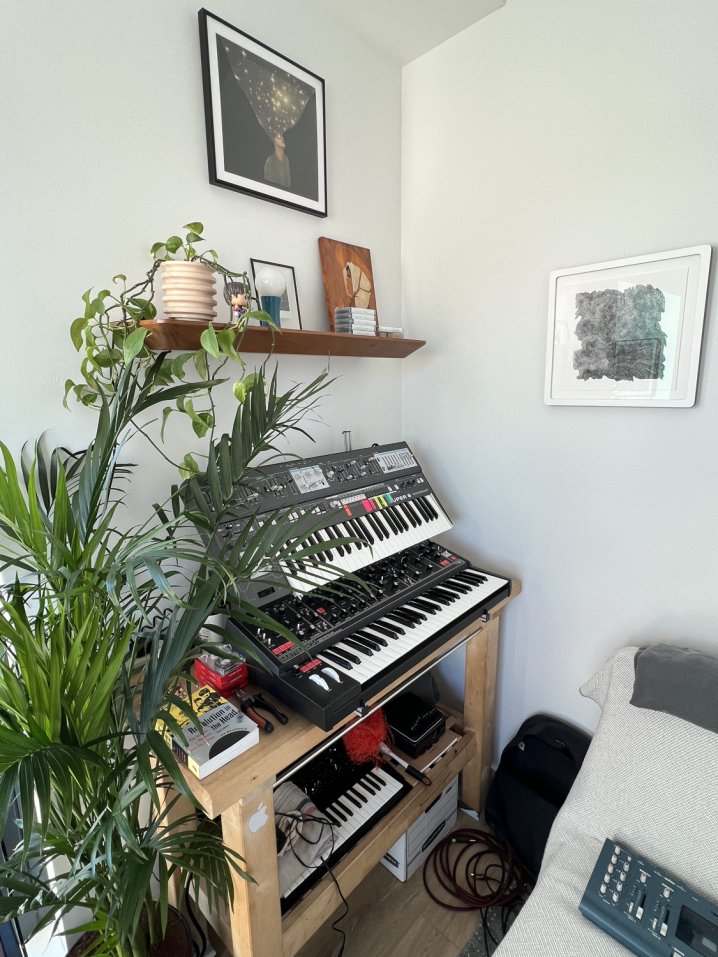
What does your live setup look like, and what do you bring with you when you travel for an extensive tour?
For past shows as Viul, I haven’t played any live instruments on stage, but rather orchestrated clips (all homemade/organic) and combined and/or processed them in new ways that I haven’t before and/or that the audience wouldn’t have heard on record. So my setup has been a laptop, two small mixers, several pedals, and a tape machine, which I’ll lean on, especially for interludes/transitions between tracks. That said, I think how this project translates to a live setting is very much still evolving, so I wouldn’t be surprised if the setup changes and expands down the line.
What is the most important environmental aspect of your current workspace, and what would be a particular element that you would improve on?
My assistant Bug (pictured), she’s an angel. Beyond that, the most important non-instrument aspects of my studio are the two large windows and the several plants I keep in the room… I’m sure this is true for many, but I find it so much nicer to make music in a space that has some light and life to it. I also use two Philips Hue lightbulbs for dimmable, colored lighting, which sometimes is nice as a supplement to whatever mood I’m in at that moment.
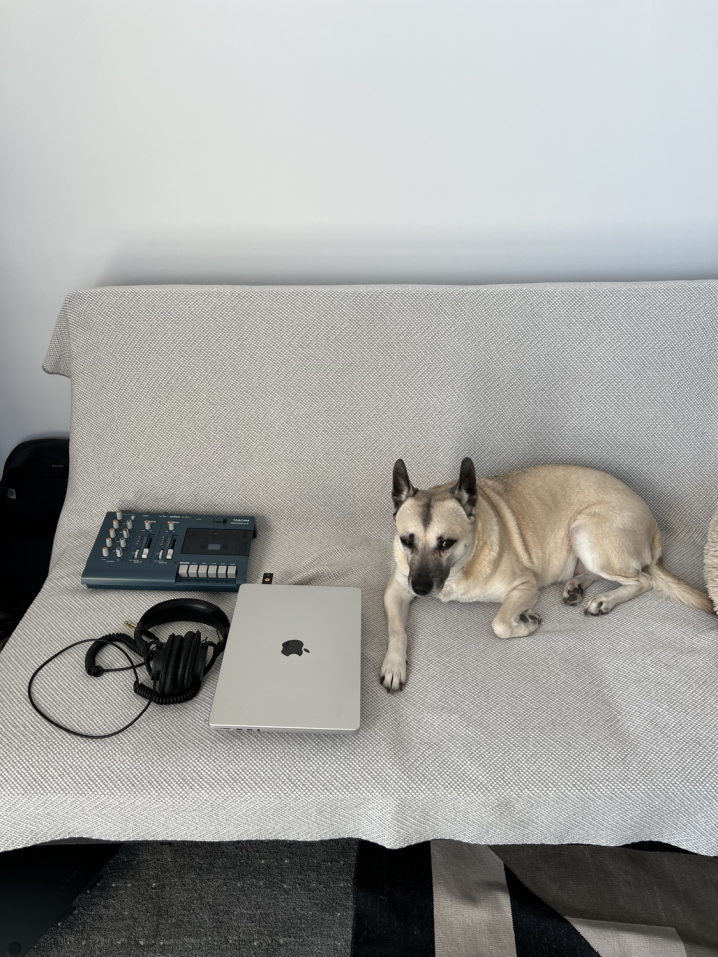
What can you tell us about your overall process of composition? How are the ideas born, where do they mature, and when do they finally see the light?
Everything starts with a melody or progression that catches my ear, and then building it out is a semi-constant process of asking myself, is this piece close *enough* to what I heard in my head in that initial excitement of the formation of an idea? I never really get all the way there, and some tracks I’ll fight with for a while before feeling comfortable; the track “Eighties” probably went through a dozen iterations over the course of two years just because no version felt quite right in terms of vindicating that original spark until one finally did.
Relatedly, I think some pieces are never necessarily finished. While working with Benoît Pioulard on our collaborative album Konec, I wrote the synth line that anchors the track “Canon,” which appears on that record. I love how that track turned out, and then later, after that record came out, I found myself still playing around with the progression and wondering if there was a way to shape it differently. That’s how “Canon (First Exhalation)” came about, as sort of a distant cousin of the original. The composition process for me is sort of choose-your-own-adventure… for every choice, there are roads not taken, and occasionally, it’s interesting to go back and explore some of those what-ifs. In the case of “Canon (First Exhalation)”, I’m really glad I did; it’s one of my favourites on the record.
After the piece is complete, how do you audition the results? What are your reactions to hearing your music in a different context, setting, or a sound system?
Sometimes, I’ll try different sound systems, headphones, etc., but for me, the most important thing is just time – once a piece is finished, I’ll really try to avoid it for a few days at least, let it slip out of my head, and then go back to it, ideally a week or more later, with fresh ears. If it still sounds like something I want out in the world, I move forward.
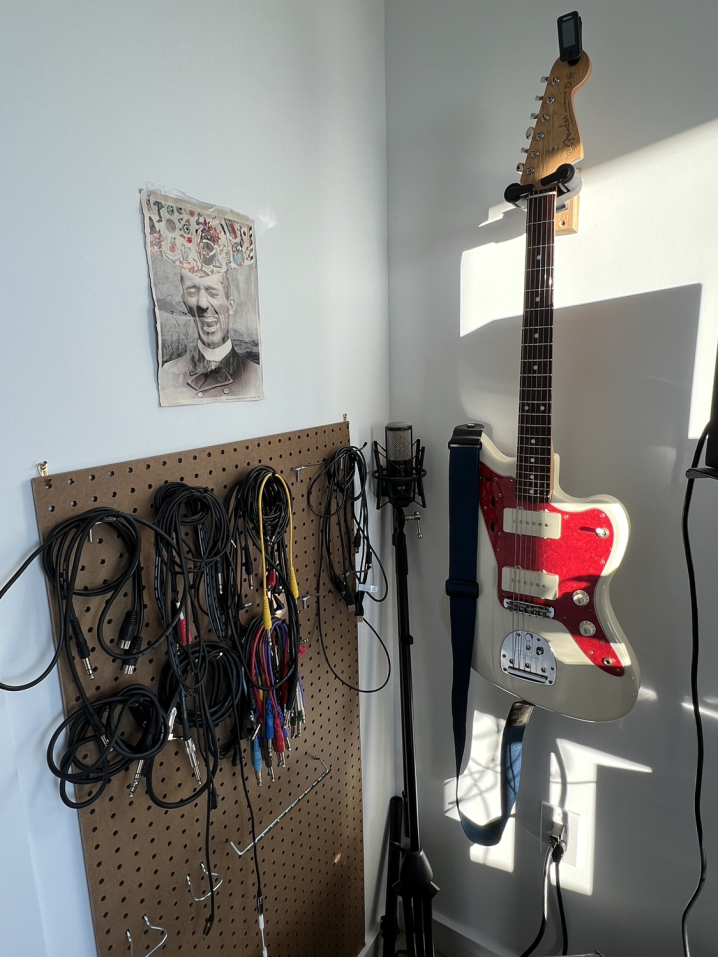
Do you ever procrastinate? If so, what do you usually find yourself doing during those times?
I am a procrastinator, yes… I read, clean my apartment, or watch Mad Men.
What gets you inspired?
It can be anything, really… the obvious answer is others’ music, and it can be stuff in the same genre or a totally different one. Occasionally, a song title will appear, either out of nowhere or from a book or a film or something, and then it’s an inspiration to create a track that fits that specific mood. I’ve also been getting more and more curious over the last couple of years about sampling everyday conversations – you can hear that on several Secret Recess tracks – and sometimes, that’s been the inspiration to build a track around. Visual stimuli, too – something as simple as the light coming into my studio.
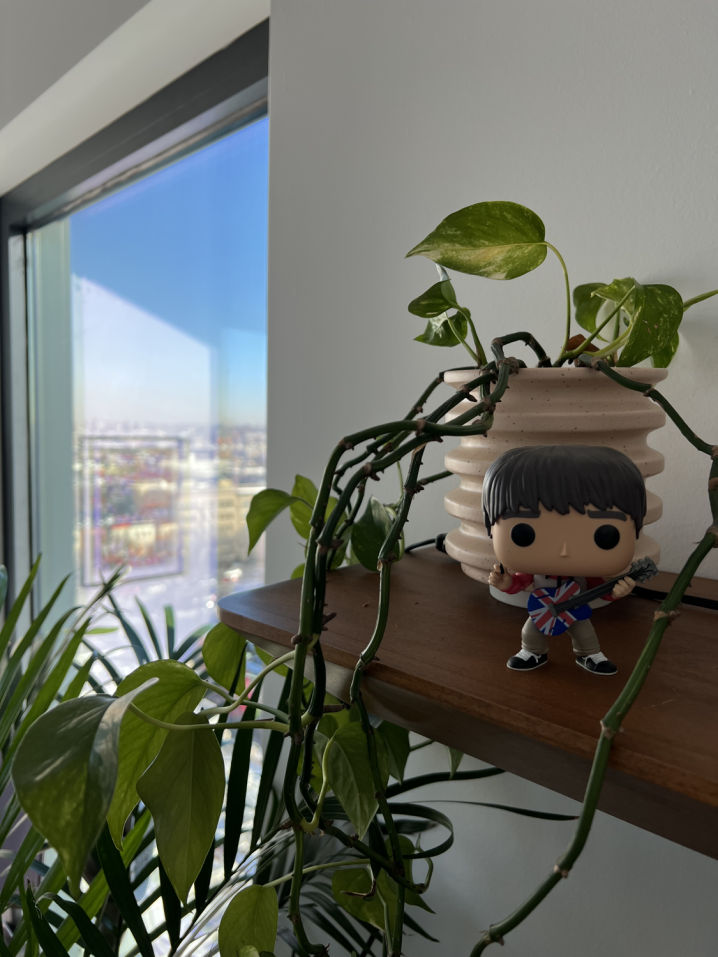
And finally, what are your thoughts on the state of “electronic music” today?
It seems like it’s nearly impossible these days to support oneself in music, for artists to get what they actually deserve, and in spite of that, there are so many people making really beautiful, interesting work in this genre, and in others as well. So I’m happy for that defiance; in a pretty grim moment for music, and for creativity and art generally, it’s a bit of light.
